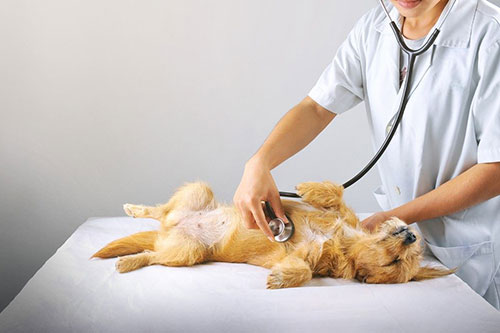
There are countless benefits to vaccinating your dogs and cats, and the number one reason is to give you peace of mind that they are protected against life-threatening and painful diseases.
Currently, plenty of misinformation is circulating about vaccinations which is why our expert team at Kirrawee Veterinary Hospital is exploring why you should be vaccinating your dogs at the recommended intervals.
If your dog isn’t vaccinated, many of the diseases they are left vulnerable to can be fatal. Even if your vet does manage to treat and cure the disease, your dog may be left with long-term, painful problems.
The main benefits of vaccinating your dog include:
Additionally, many boarding kennels and obedience classes will not accept your dog if they aren’t up to date with their vaccinations. You’ll also need the paperwork as evidence. This also applies if you’re planning on taking your dog overseas with you at any point.
Your dog should be vaccinated at a puppy, and then they need to receive regular boosters throughout their life to stay protected. Your puppy can begin vaccinations from around 8-weeks of age, receiving a second set 2-4 weeks later.
Parvovirus is a highly contagious disease that causes bloody diarrhoea and extreme vomiting in dogs. This can be deadly without treatment. Early vaccinations and booster shots every 3 years will prevent your dog from contracting this disease.
This is a contagious and deadly virus that attacks your dog’s lymph nodes, respiratory system, urinary system, digestive system and nervous system. It is passed between dogs by saliva, blood and urine. Vaccinations against canine distemper are extremely successful and should be repeated every 3 years.
This is a bacterial infection that attacks your dog’s nervous system and internal organs. Leptospirosis is transferred through infected urine and water, making it very easy to catch if your dog isn’t vaccinated. This disease can be transferred to humans (in humans, it is called Weil’s disease).
Leptospirosis can lead to kidney damage and liver failure. This virus is easy to avoid with vaccinations and booster shots should be administered every year.
ICH attacks the liver, kidneys, eyes and blood vessel linings. It can be spread quickly through bodily fluids and survive in the environment for up to a year. There is no cure for ICH which is why vaccination is vitally important, and their booster shots should be administered every three years.
It’s vitally important that you stick to the recommended intervals for puppy and adult dog vaccinations to prevent the spread of these highly infectious diseases. Bring your puppy to Kirrawee Veterinary Hospital to protect them today. You can call us on (02) 9521 6422 or contact us online.